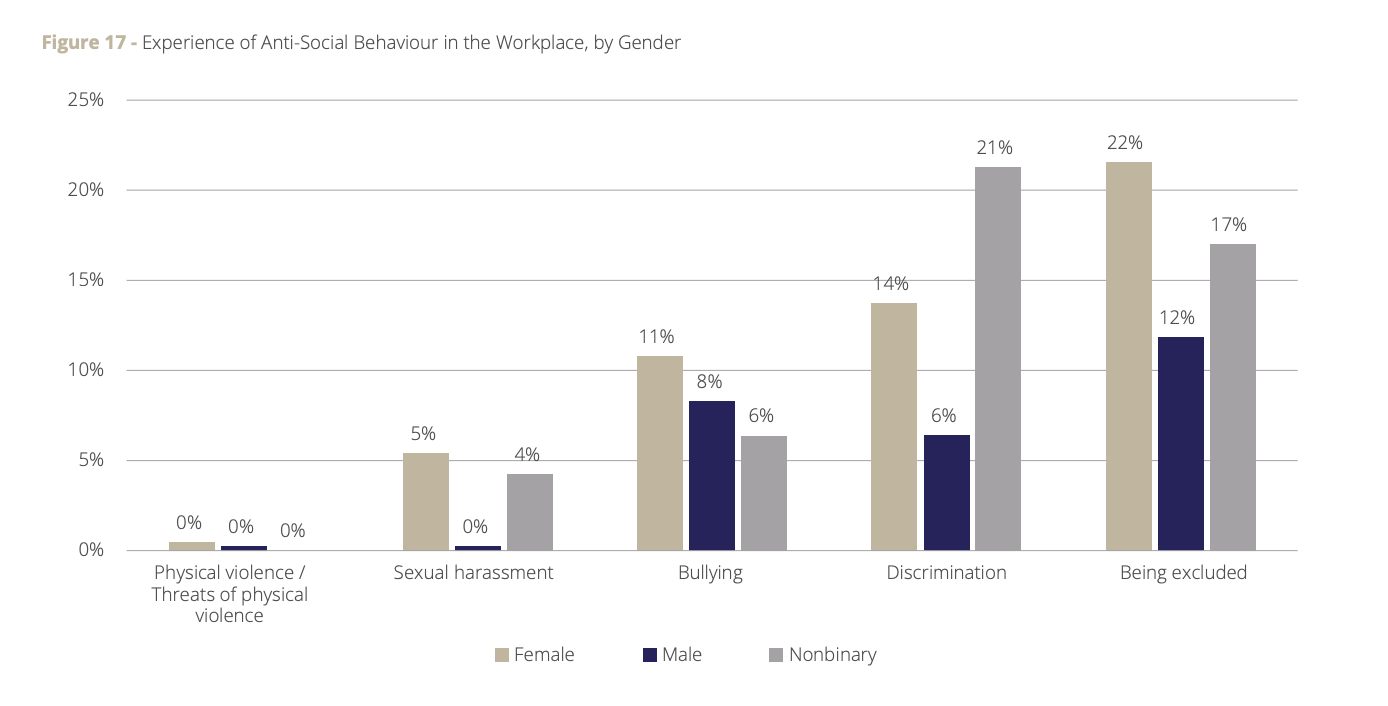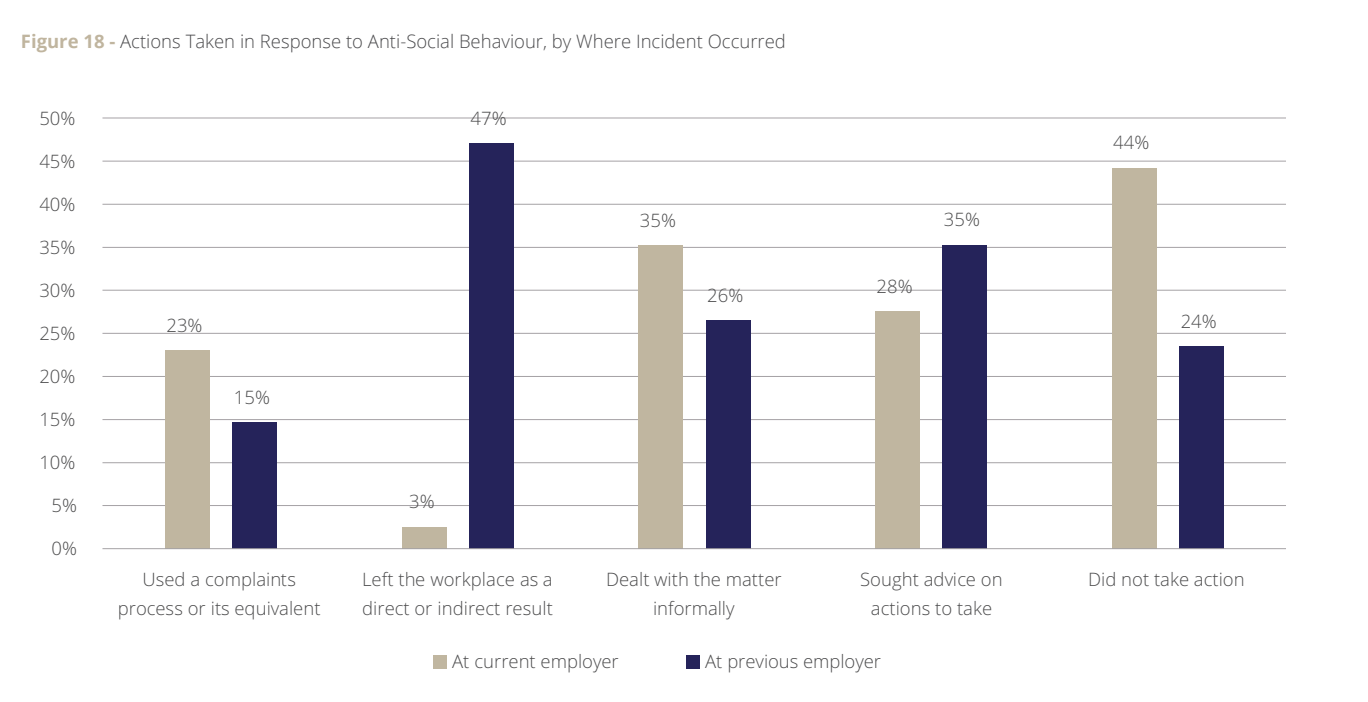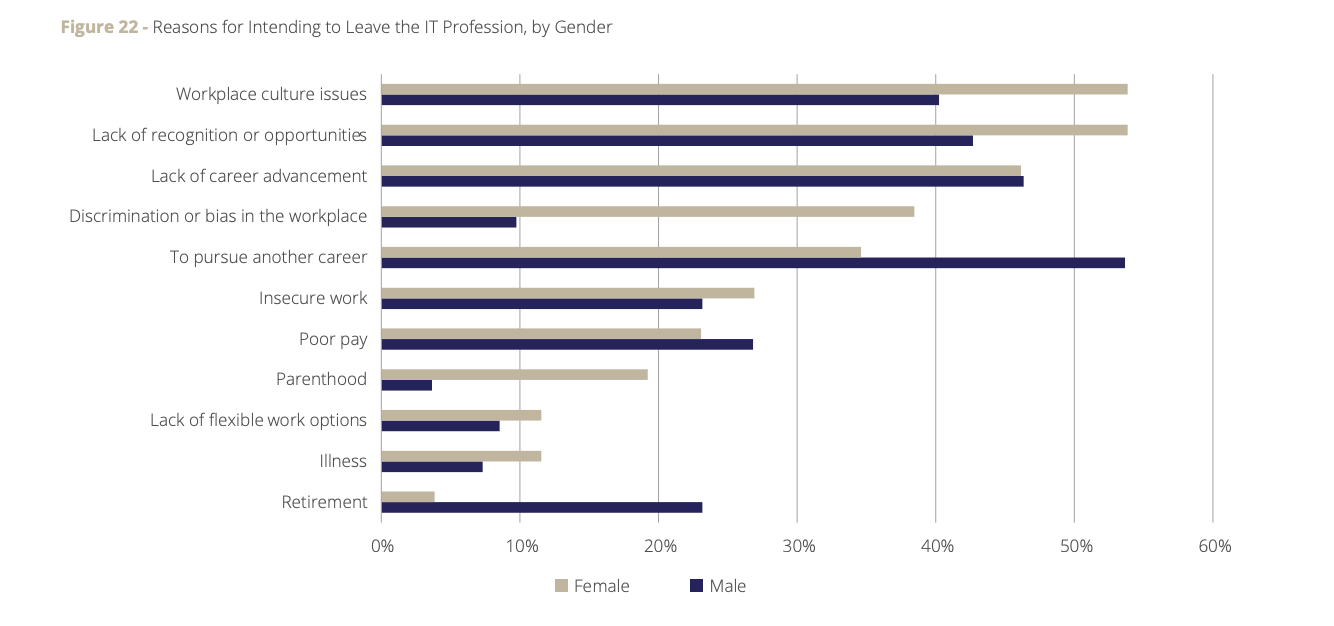
Behaviours 'create occupational health and safety risks,' says Australian report

Tech and IT professionals across Australia have reported being excluded as the most common anti-social behaviour they've experienced in the workplace, according to new research.
Findings from Professionals Australia's latest survey on workplace trends in the tech sector revealed a "variety of anti-social behaviour" at work. These include exclusion, bullying, discrimination, and sexual harassment.
"All these behaviours contribute towards negative experiences of the workplace and create occupational health and safety risks by either threatening the immediate wellbeing of staff or damaging their wellbeing over time," the report read.
Breakdown by gender
According to the findings, female employees were more likely to experience exclusion, discrimination, and bullying than their male colleagues.
In terms of discrimination, however, respondents who identified as nonbinary were most likely to report this experience than their male and female colleagues.
"Although sexual harassment was not common among any group, it was almost entirely reported by female and nonbinary/gender diverse professionals responding to the survey," the report read.

Source: Professional Australia
According to the report, those who stayed with their employer after their most recent anti-social experience are most likely to not report the incident to their organisation. They were also more likely to deal with the matter informally.
"Use of a complaints process was not particularly common in response to an incident, but it was more common among those who remained at the employer where the incident occurred."

Source: Professional Australia
Drivers for departure
The findings come as issues related to workplace culture is the most cited reason of female employees on why they're leaving the IT profession. Women also attributed their plans to leave to the lack of recognition or opportunities and discrimination or bias in the workplace, according to the report.
"It is concerning that women who were intending to leave the IT profession were far more likely to report a range of cultural issues which suggest a lack of policies for effectively addressing the significant gender gap which continues in the IT industry," the report read.
More women are also citing parenthood as reason for leaving the industry when compared to men.
"The gap between women and men on the reason of parenthood further suggests that more work is needed advocate for robust parental leave policies across the industry which can support women's workforce participation," the report said.

Source: Professional Australia